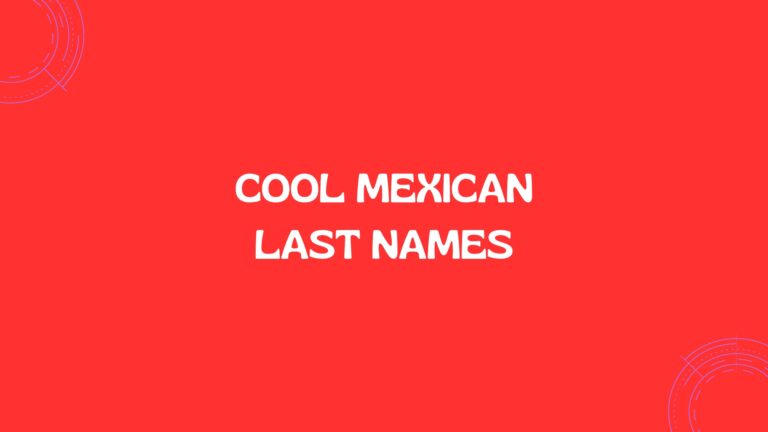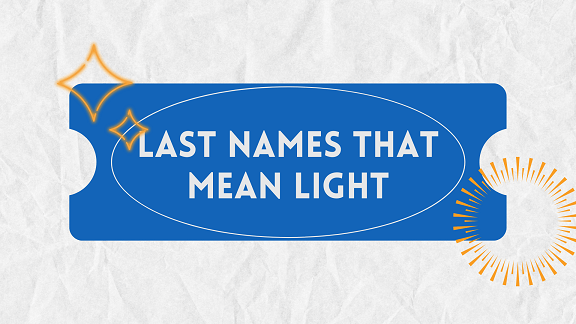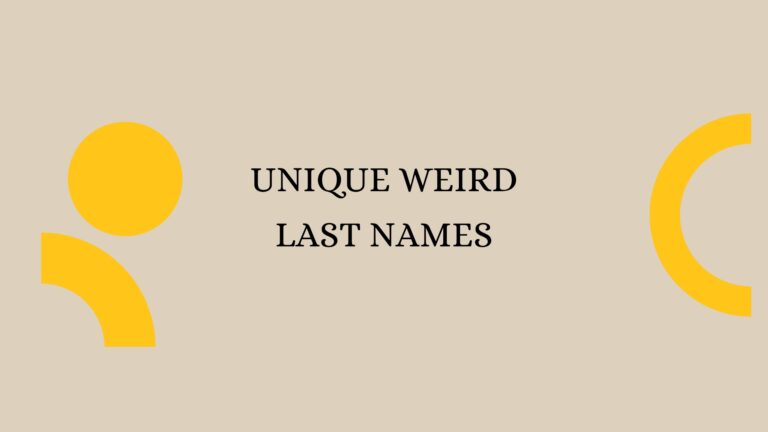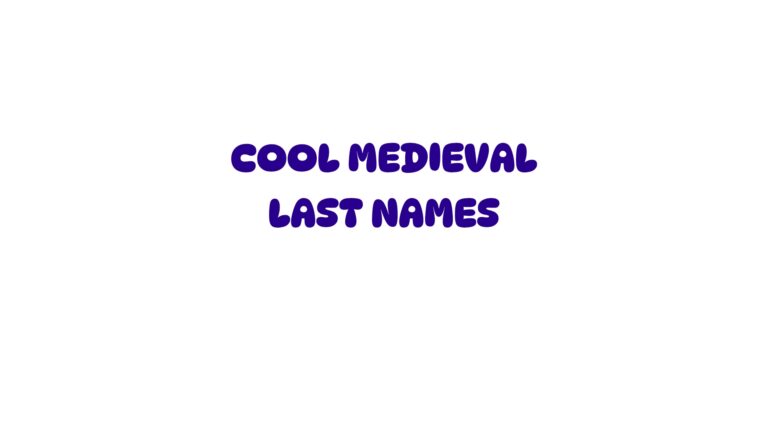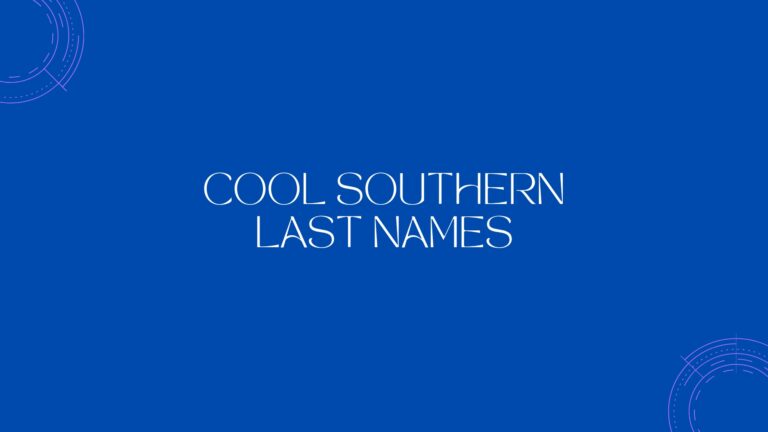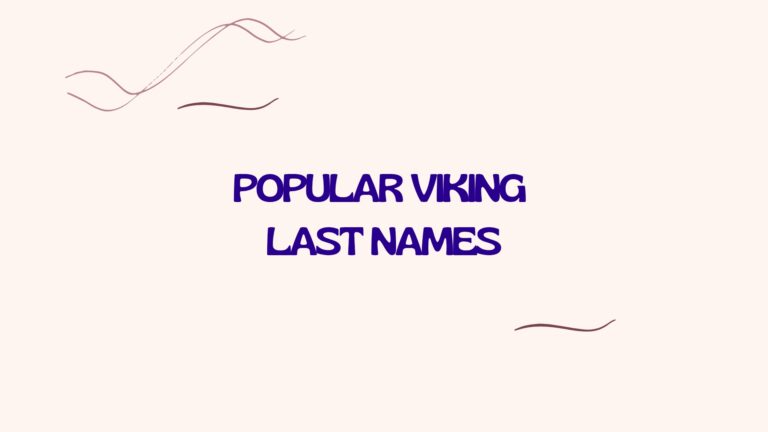100 Classy Last Names
A good last name, by virtue of its elegance and class, may impart an impression that lasts.
Whether you are in search of an elegant last name for one of your characters, a pen name, or perhaps for changing your name, a last name with the right image is enough to suggest elegance and classiness, rich history, and prestige.
From classic aristocratic names to smooth and modern options, this list examines the most admirable and stylish last names that will stand out with grace and refinement.
Classy Last Names
Sinclair – Derived from the French “Saint-Clair,” meaning “holy and bright.”
Beaumont – French for “beautiful mountain,” associated with nobility.
Montgomery – Of Norman origin, meaning “manpower” or “mountain of the ruler.”
Chamberlain – English surname referring to a high-ranking officer managing royal households.
Windsor – A royal surname linked to British nobility and the famous castle.
Carrington – English origin, meaning “estate of the family of Cara.”
Astor – German origin, meaning “hawk,” famously associated with wealth and power.
Harrington – English surname meaning “estate of Hæfer’s people.”
Wentworth – Old English for “pale settlement,” a name linked to aristocracy.
Kensington – English, meaning “Cynesige’s town,” tied to luxury and prestige.
Buchanan – Scottish surname meaning “house of the canon.”
Chatsworth – Linked to grandeur, derived from a noble English estate.
Lancaster – English, meaning “Roman fort on the River Lune,” associated with royalty.
Prescott – English for “priest’s cottage.”
Fairfax – Old English for “blond-haired,” associated with nobility.
Blackwood – Scottish, meaning “dark forest,” often linked to mystery and elegance.
Sterling – English for “little star,” symbolizing value and sophistication.
Aldridge – English, meaning “old ridge,” associated with historic prestige.
Pembroke – Welsh origin, referring to a historic county and noble title.
Hastings – Anglo-Norman surname linked to the famous battle of 1066.
Lennox – Scottish, meaning “place of elms.”
Ashford – English, meaning “ford near the ash trees.”
Stratford – English for “street ford,” evoking a refined heritage.
Ellington – Old English for “Ella’s town,” linked to culture and grace.
Hollingsworth – English, meaning “holly trees’ estate.”
Vanderbilt – Dutch for “from the hill,” associated with extreme wealth.
Belvedere – Italian for “beautiful view,” evoking elegance.
Devereaux – French for “from Evreux,” linked to nobility.
Arlington – Old English for “settlement of the eagles.”
Remington – English for “raven’s town,” often linked to refinement.
Whitmore – English for “white moor,” symbolizing purity and grace.
Monroe – Scottish, meaning “mouth of the Roe River.”
Huntington – English for “hunter’s town,” tied to aristocracy.
Langley – Old English for “long meadow.”
Hampton – English for “home settlement,” linked to grandeur.
Worthington – English for “Wurð’s town,” evoking prestige.
Clifton – English for “settlement near a cliff.”
Ellsworth – Old English for “Ellis’s estate.”
Gainsborough – English for “Gegn’s fortified place.”
Barrington – English for “Barra’s town.”
Middleton – Old English for “middle town,” often linked to noble estates.
Livingston – Scottish for “Leving’s town.”
Tennyson – English for “son of Dennis,” famously linked to poetry and elegance.
Somerset – English for “summer settlement,” tied to aristocracy.
Wellington – English for “wealthy estate,” famously linked to the Duke of Wellington.
Harrington – English for “estate of Hæfer’s people.”
Rockefeller – German for “from Rockenfeld,” associated with immense wealth.
Davenport – Old English for “market town on the River Dane.”
Chadwick – English for “Chad’s village.”
Kingsley – Old English for “king’s meadow,” evoking majesty and refinement.
Abernathy – Scottish, meaning “mouth of the river Nethy.”
Alcott – English, meaning “old cottage.”
Ashbourne – English, meaning “ash tree stream.”
Barrington – English, meaning “Barra’s town.”
Bellington – English, meaning “beautiful town.”
Benedict – Latin, meaning “blessed.”
Bexley – Old English, meaning “box tree clearing.”
Bradford – Old English, meaning “broad river crossing.”
Branford – English, meaning “ford where broom grows.”
Brayton – English, meaning “town near the broad river.”
Brighton – English, meaning “bright town by the coast.”
Calhoun – Irish, meaning “narrow woods.”
Calloway – French, meaning “pebbly place.”
Carnegie – Scottish, meaning “fort at the gap.”
Channing – English, meaning “young wolf.”
Charleston – English, meaning “Charles’s town.”
Clarendon – Old English, meaning “bright hill.”
Crawford – Scottish, meaning “ford of the crows.”
Cunningham – Scottish, meaning “milk pail settlement.”
Dashiell – French, meaning “from Achille.”
Delacroix – French, meaning “of the cross.”
Drummond – Scottish, meaning “ridge.”
Eastwood – English, meaning “eastern forest.”
Eddington – English, meaning “Eadda’s town.”
Fairchild – Old English, meaning “beautiful child.”
Fitzgerald – Irish, meaning “son of Gerald.”
Fleming – Scottish, meaning “from Flanders.”
Forester – English, meaning “keeper of the forest.”
Golding – English, meaning “son of Golda.”
Hathaway – English, meaning “path across a heath.”
Hollister – English, meaning “dweller by the holly trees.”
Hollingsworth – English, meaning “holly trees’ estate.”
Howard – Old English, meaning “high guardian.”
Kingsford – English, meaning “ford of the king.”
Kipling – English, meaning “Cybbel’s people.”
Langford – English, meaning “long river crossing.”
Lavington – English, meaning “settlement of Lafa’s people.”
Lockwood – English, meaning “forest near a lake.”
Marchmont – French, meaning “horse hill.”
Montague – French, meaning “sharp mountain.”
Montford – Old French, meaning “mountain ford.”
Northcott – Old English, meaning “northern cottage.”
Pembroke – Welsh, meaning “land’s end.”
Radcliffe – Old English, meaning “red cliff.”
Rosenthal – German, meaning “valley of roses.”
Seabrook – English, meaning “stream by the sea.”
Sedgewick – Old English, meaning “sword place.”
Thackeray – Old English, meaning “place with a roof of thatch.”
Whittaker – English, meaning “white field.”
Winthrop – Old English, meaning “friend’s village.”


